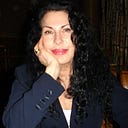You make good points. Kabbalah is the science of understanding the interconnectedness of all things, supporting the existence of non-existence. It deals with a realm that is not easy in our grasp, the afterlife, angels, secret interpretation of the Torah, prophecies, and prediction - all are within the teachings of Kabbalah.
This statement led to the idea that people should not study philosophy or Kabbalah until they reach 40 years of age, a sentiment codified by a 17th-century rabbi. So basically, you and I learn only at an introductory level.
But according to modern thinking, to understand on a deeper level what’s in the Kabbalah–maybe you’ll be ready at 27, maybe not until 58, maybe never–but the thing is that you need to have a high degree of Jewish literacy, in addition to an ability to think deeply and mystically about God and God’s role in the world.
In Benjamin Franklin’s words, “At 20 years of age, the will reign; at 30, the wit; and at 40, the judgment.”
As it is in the work of many great writers. Time to practice can make a natural talent into a master. As it is with the late-blooming fiction giants, such as Joseph Conrad, Virginia Woolf, Henry James, Philip Roth, and Don DeLillo. Their best works emerged later in life, the writing improving with age.
Like with anything else, including politics there has to be a level of understanding to make wise decisions instead of following the herd and believing anything we are told.
